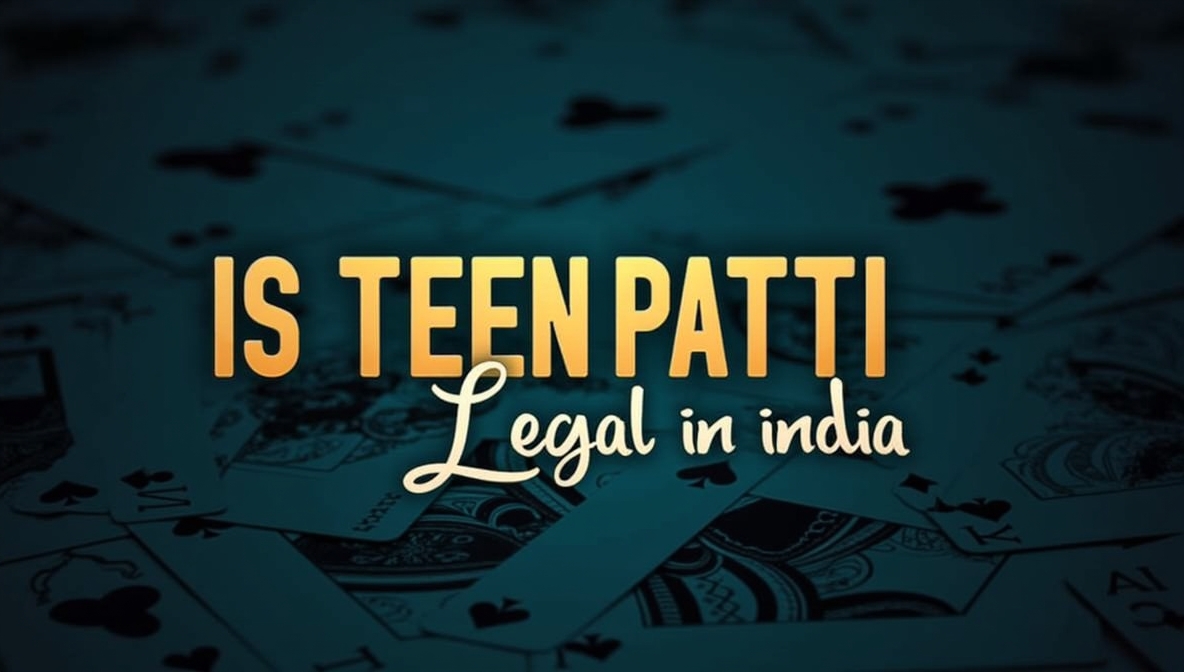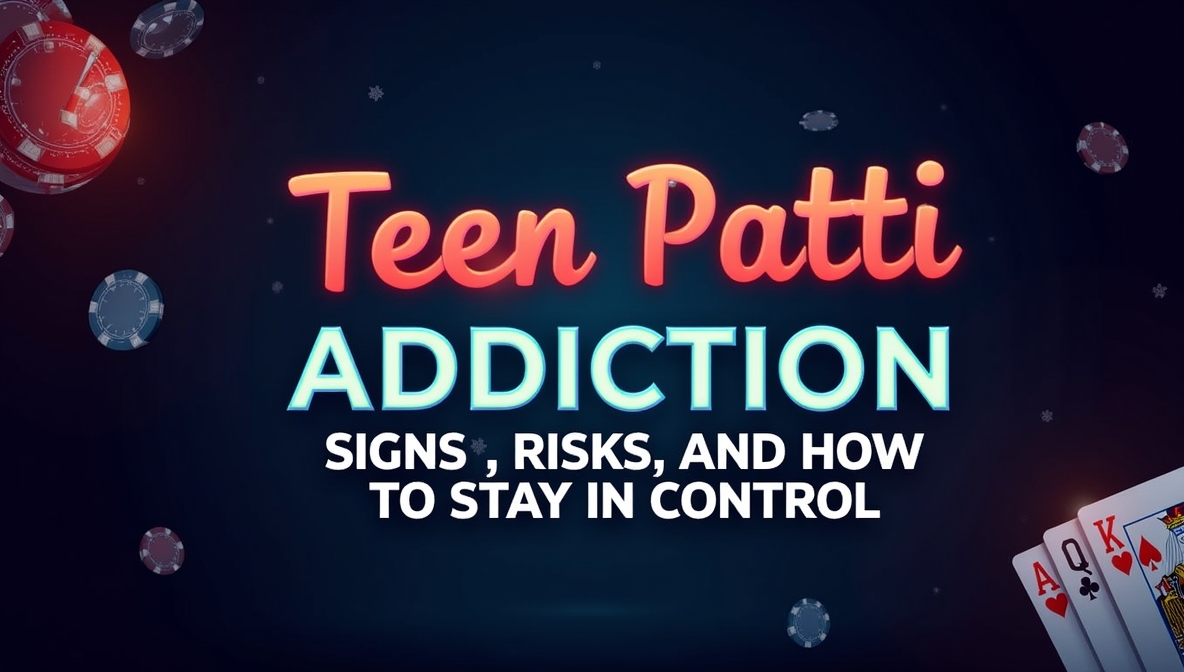Introduction
Teen Patti, a beloved Indian card game, is played in homes, clubs, and increasingly, on online platforms. Popular during festivals like Diwali and casual social gatherings, it has become a cultural staple. But with the rise of real-money Teen Patti apps, many Indians are now asking a critical question: “Is Teen Patti legal in India?”
The answer isn’t straightforward. India’s gambling laws are state-specific, meaning what’s allowed in Maharashtra might be banned in Telangana. In this article, we’ll break down the legality of Teen Patti—offline and online—state by state, and help you understand the legal landscape surrounding this traditional game.
Understanding the Legal Status of Gambling in India
Before we get into state laws, let’s understand how India views gambling.
- The Public Gambling Act, 1867: This central law prohibits running or being in charge of a public gambling house but allows individual states to formulate their own rules.
- Game of Skill vs. Game of Chance: Games that rely predominantly on skill are generally legal, while those based on chance are often considered illegal.
Teen Patti is generally considered a game of chance, which puts it in a legally sensitive category, especially when played for real money.
Teen Patti: Offline vs. Online
Offline Teen Patti (Played at Home)
- Legal in most states when played in private with friends or family for fun or low-stakes.
- During festivals like Diwali, friendly Teen Patti games are widely accepted and culturally ingrained.
Online Teen Patti (Mobile Apps or Websites)
- This is a legal grey area.
- Most Indian states do not clearly regulate online Teen Patti, but several have begun to ban or restrict online gambling apps.
State-Wise Breakdown: Is Teen Patti Legal in Your State?
Let’s explore the Teen Patti legality state by state, focusing on both offline and online formats.
1. Maharashtra
- Offline Teen Patti: Legal for private use.
- Online Teen Patti: Maharashtra follows the Bombay Prevention of Gambling Act, 1887. Online gambling is technically banned, but enforcement is unclear.
2. Delhi
- Offline Teen Patti: Allowed in private settings.
- Online Teen Patti: Not explicitly regulated, but games of chance online are viewed skeptically.
3. Karnataka
- Offline Teen Patti: Permitted socially.
- Online Teen Patti: Banned in 2021, but the Karnataka High Court struck down the ban in 2022. The government may appeal again, so it remains uncertain.
4. Tamil Nadu
- Offline Teen Patti: Private play is allowed.
- Online Teen Patti: Initially banned in 2021. The ban was later overturned, but new laws regulating online gambling are being considered.
5. Telangana
- Offline Teen Patti: Legal in non-commercial private spaces.
- Online Teen Patti: Strictly banned. Telangana has one of the strongest anti-online gambling laws in India.
6. Andhra Pradesh
- Offline Teen Patti: Permitted among friends or family.
- Online Teen Patti: Banned under the Andhra Pradesh Gaming (Amendment) Ordinance, 2020.
7. Goa
- Offline Teen Patti: Legal. Goa allows land-based casinos.
- Online Teen Patti: Online games not specifically banned; gambling apps operate here due to lenient regulations.
8. Sikkim
- Offline Teen Patti: Legal.
- Online Teen Patti: Regulated under Sikkim Online Gaming (Regulation) Act. One of the few states with an established online gaming framework.
9. Nagaland
- Offline Teen Patti: Allowed.
- Online Teen Patti: Considered illegal, as Teen Patti is categorized as a game of chance. Nagaland only allows games of skill online.
10. West Bengal
- Offline Teen Patti: Allowed.
- Online Teen Patti: Grey area. The West Bengal Gambling and Prize Competitions Act does not clearly address online games.
11. Punjab and Haryana
- Offline Teen Patti: Social play permitted.
- Online Teen Patti: Not explicitly regulated; however, courts lean toward classifying Teen Patti as gambling.
12. Uttar Pradesh
- Offline Teen Patti: Common during festivals; legal in private.
- Online Teen Patti: Not directly regulated. Still, players should use caution, especially with real money platforms.
13. Rajasthan
- Offline Teen Patti: Private play allowed.
- Online Teen Patti: Online gambling apps operate in Rajasthan, but legal clarity is lacking.
Risks of Playing Teen Patti Online
Even if online Teen Patti isn’t clearly illegal in some states, it carries legal and financial risks:
- Legal Uncertainty: Laws can change rapidly, and enforcement may be selective.
- Data Privacy: Many apps aren’t fully secure and may misuse your personal or banking information.
- Financial Losses: Playing with real money can lead to addiction or debt.
- Scams & Fake Apps: Some apps are unregulated and can trap users with false bonuses or rigged games.
Tips for Safe Teen Patti Play in India
If you enjoy Teen Patti and want to stay on the safe side:
- Avoid Real-Money Play if your state has strict anti-gambling laws.
- Use Only Trusted Apps with positive reviews and transparent policies.
- Play in Private Settings with friends and low stakes.
- Don’t Mix Alcohol and Gambling, especially in public or rented venues.
- Know the Law in Your State and keep an eye on changes or bans.
Calls for Central Regulation
As more people play Teen Patti online, there is growing support for a centralized legal framework to regulate online gaming in India. The current patchwork of state laws creates confusion and makes it harder for players to know what’s allowed.
A unified policy could:
- Differentiate between games of skill and chance.
- License and regulate real-money gaming platforms.
- Protect users from fraud and addiction.
- Encourage responsible gaming.
Until that happens, state laws will continue to govern Teen Patti legality.
Conclusion
So, is Teen Patti legal in India? The answer is—it depends on where you are and how you’re playing.
- Offline Teen Patti, especially among friends and family during festivals, is generally legal across India.
- Online Teen Patti for real money is where the legality becomes complex. Some states have banned it outright, while others remain unclear.
To enjoy Teen Patti without legal trouble, stay informed about your state laws, avoid risky platforms, and always play responsibly. Whether you’re playing for fun or celebrating traditions, knowing the rules—both legal and game-based—makes the experience more enjoyable and secure.





